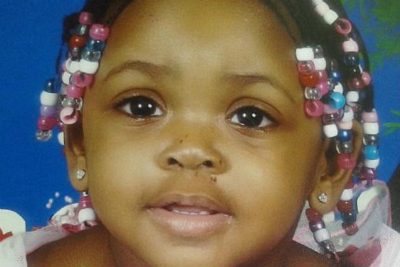
It’s no secret that minorities face unique challenges when it comes to health. A tendency to be “reactive” as opposed to “proactive” can prove deadly when it comes to tackling our biggest concerns related to wellness. Gift of Life MOTTEP aims to change that that fact.
The non-profit organization hosted its 4th annual Kountz, Callendar & Drew transplant symposium to discuss current disparities in organ donation. Physicians, professionals, medical students and members of the community came together to discuss what it will take to improve the number of minorities who participate in giving the”gift of life”.
National MOTTEP Founder Clive Callendar, M.D., spoke about his experience as a pioneer in transplant surgery. Dr. Callendar expressed the importance of educating the community to get more people interested in organ donation. He also called attention to a growing trend in the medical field he expects will bring great innovation.
“The next horizon that we really need to address is stem cell transplantation.”
Dr. Callendar compared the topic to the initial transplant research of the 1980’s. He expressed that current developments continue to gain momentum across the globe. People are becoming increasingly interested in “stem cell” possibilities, and what that means for the future of the health care industry.
“In the next 5 to 10 years, stem cell research could be the area that dramatically lowers health care costs”, said Dr. Callendar.
The sole surviving member of MOTTEP’s founding trio, Dr. Callendar stated major concerns for our community also include management of Diabetes and Hypertension. He also called attention to “institutionalized racism” and how it contributes to inequalities related to minority health. Dr. Callendar expressed that certain factors continue to negatively impact wellness, and there is room for improvement. He proposed that solutions must be predicated on “the power of an educated and empowered community”.
“Right now, we win the race from the cradle to the grave. That’s a race we want to lose.”
African Americans face overwhelming disparities, yet they are not alone. Other minority groups struggle with poor quality of health. A major culprit that keeps doctors from saving more lives is the low rate of organ donation, particularly among certain ethnicities. In fact, some cultures harbor beliefs and values that contribute to their denial of giving. Keynote speaker Isabel Yuriko Stenzel Byrnes spoke about disparities among Asian cultures. Born of mixed parentage- her mother is Japanese and her father is German- Byrnes addressed how traditional views toward spirituality, death and the human body in general influence donor rates among Asians.
An organ donor recipient, Byrnes talked about her and her twin sister’s battle with Cystic Fibrosis. She told the stories of the individuals who died tragically, yet gave them the “gift of life”. Over time, the siblings grew close to others fighting the disease. Through community activism, traveling the world and even writing a memoir, Byrnes continues to spread the word about an important cause she feels has yet to gain the national attention it deserves.
“The Asian American presence in the organ donation conversation is lacking.”
Byrnes’ spoke about an experience that is not unique to Japanese culture. It mimics a stigma witnessed among individuals of various ethnic groups. Dr. Anita Moncrease, Medical Director of Detroit Health and Wellness Promotions, discussed a widespread distrust of the health care industry that exists among African Americans. Historic events like the Tuskegee Experiment only exacerbate such concerns. Other issues that impact black households relate to overall apathy and a lack of awareness.
Following the keynote address was a physician-led panel that discussed laws related to organ donation. Panelists addressed the question of, what should be the default rule? They describes the tremendous burden placed on family members when individuals fail to make a decision with regard to donating their organs. Doctors shared stories illustrating the loopholes of current legislation. Dr. Miguel West, Clinical Chief of Transplant Services and Surgical program director at Harper Hospital, shared a heart-wrenching account of presumed consent “gone wrong”. A hospital in Washington D.C. came under fire for taking organs from a Virginia resident who died shortly after being flown in for trauma he endured during a horrific car accident. State law mandated their decision, however it was vehemently opposed by the widow of the deceased. She alleged it went against her husband’s wishes. In stark contrast, fellow panelist Harry Lucas gave a heartfelt testimony of his family’s decision to donate the organs of his daughter April, who died after a brain aneurysm.
Both stories illustrate the tension surrounding such a controversial subject. Many individuals avoid making the decision only to leave their families in limbo. Attorney Lance Gable discussed the importance of having an “advanced directive” to take the burden off their shoulders.
The symposium covered several important subjects ranging from obesity to palliative care and Hospice. Gift of Life MOTTEP seeks to encourage awareness through promoting knowledge that helps community members achieve wellness, yet prepare for the worse. While many medical professionals were in attendance, the event served to benefit all.
Teresa Harris, a guest speaker who currently awaits a Kidney transplant, shared why she feels the symposium has something for everyone.
“I think it’s a really good opportunity for patients and their families to be informed about what’s going on with their health.”
Spreading awareness through education is perhaps the most effective proactive measure the community as a whole can take to improve health conditions. By focusing what must be done to resolve certain challenges, members can do their best to ensure they do not reach a fatal degree.
For more information on Detroit’s Gift of Life MOTTEP, visit www.detroitmottepfoundation.org.
Follow Britney Spear on Twitter @MissBritneySp